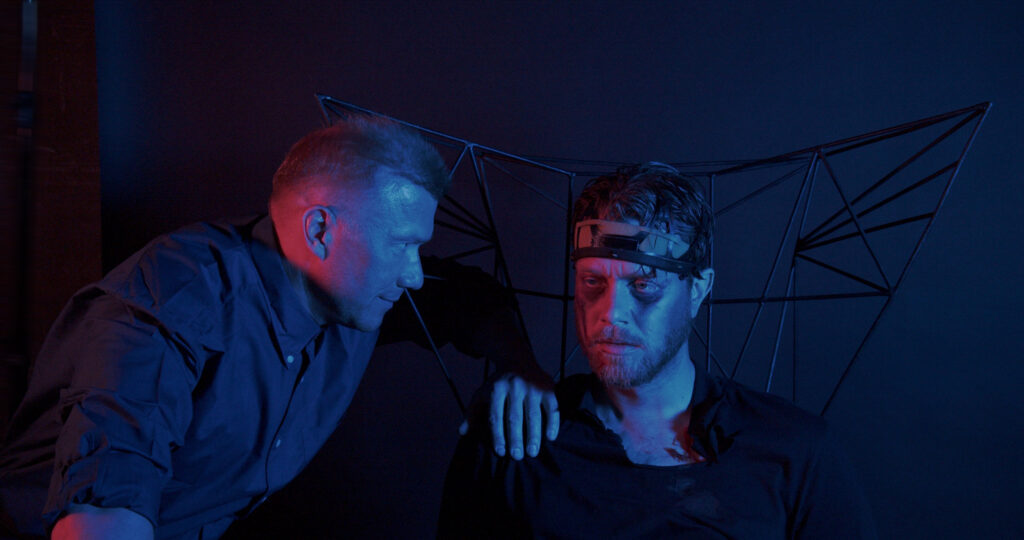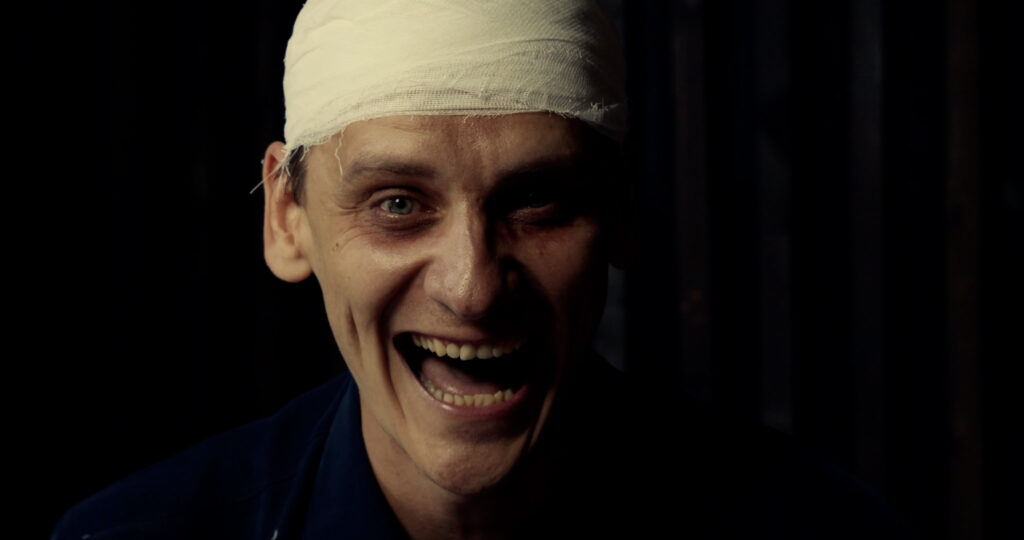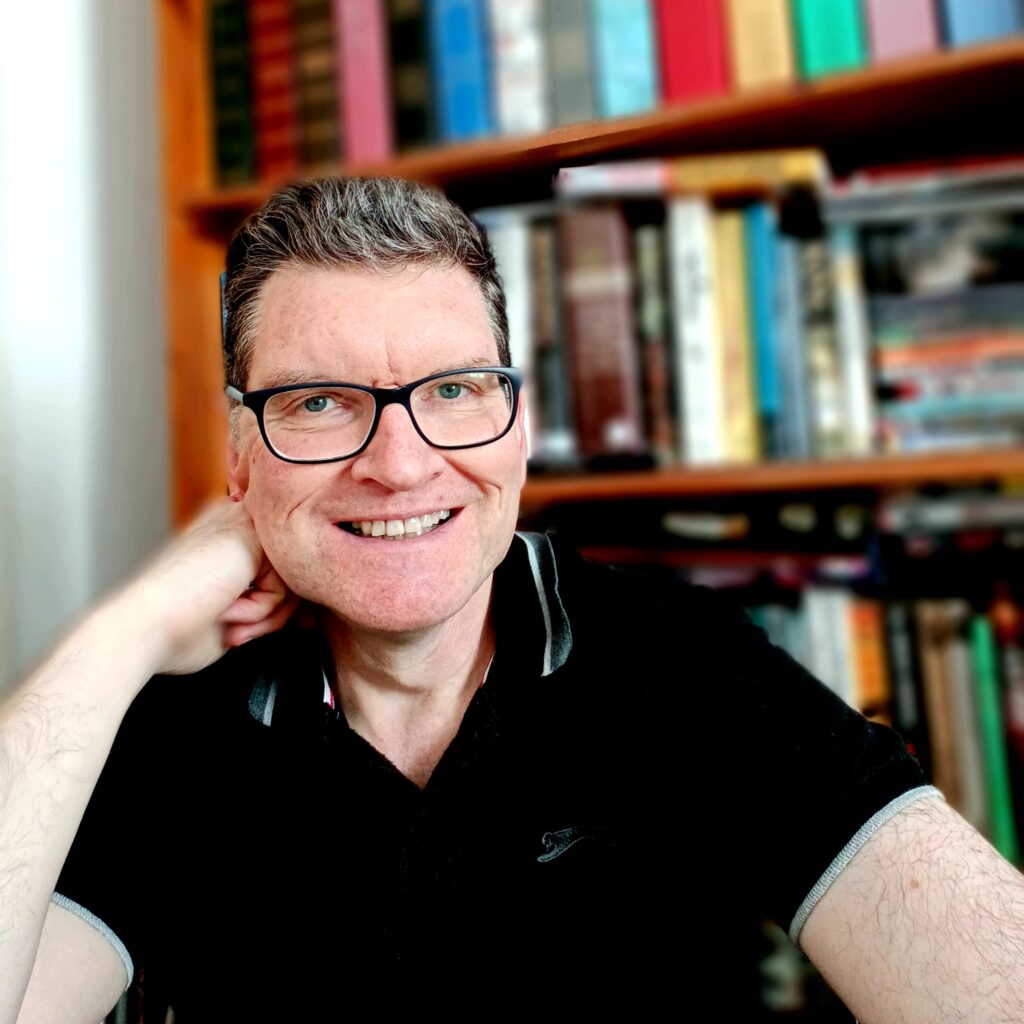
A new film of George Orwell’s 1984, now available to rent or buy on Amazon, is the first screen version of the dystopian classic in 39 years. Michael Radford’s adaptation, starring John Hurt and Richard Burton, was made in 1984 itself to capitalise on the title, but apart from a BBC radio drama with Christopher Eccleston in 2013, recorded versions have been few and far between. David Ryan, author of George Orwell on Screen, spoke to the film’s writer-director, Diana Ringo.
David: What made you initially decide to make a film of 1984?
Diana: “1984” has always been one of my favorite novels. When I made my feature film debut “Quarantine” in 2021, I became interested in further exploring the topic of a totalitarian society. My previous film also concerns these concepts, and in a way “1984” is a spiritual sequel to “Quarantine”.
David: Why did you combine it with We?
Diana: Without Yevgeny Zamyatin’s novel “We” there would be no “1984.” Unlike Orwell, Zamyatin was first published abroad, and in his native language was published only much later, and faced persecution in Russia, although many filmmakers and writers borrowed from his book. In my film, I want to show the origins of “1984,” which echoed the plot, atmosphere, and idea of Zamyatin’s book. By the way, these influences are not only from “We” but also from Jack London’s novel “The Iron Heel.” Orwell said that any authority is a boot stomping on the human face. This image is taken from London’s novel, and it refers to the unlimited power of the oligarchy. In London’s novel, the ruthless attitude of big capital is shown not only toward wage workers but also toward small businesses. This is especially relevant today. Also, “The Iron Heel” mentions that the oligarchs completed the construction of the giant city of Asgard in 1984. Perhaps Orwell named his novel “1984” precisely for this reason—Orwell was familiar with “The Iron Heel” and even wrote a review of it as well as a review of “We”.Many believe that the expression “two plus two equals five” is Orwell’s original phrase, meaning false convictions imposed by totalitarianism. However, it is not. Zamyatin already wrote in “We”:
“Ever-loving two plus two, Ever-fusing in passionate four, The hottest lovers in the world—Unseverable two plus two…”
For Zamyatin, this expression is a symbol of rational thinking. Dostoevsky wrote about this subject in in “Notes from Underground”:
“At least man has always somehow feared this two times two is four, and I fear it even now. Suppose all man ever does is search for this two times two is four; he crosses oceans, he sacrifices his life in the search; but to search it out, actually to find it – by God, he’s somehow afraid. For he senses that once he finds it, there will be nothing to search for. Workers, when they’re done working, at least get their pay, go to a pot-house, then wind up with the police – so it keeps them busy for a week. But where is man to go? Something awkward, at any rate, can be noticed in him each time he achieves some such goal. Achieving he likes, but having achieved he does not quite like, and that, of course, is terribly funny. In short, man is comically arranged; there is apparently a joke in all this. But still, two times two is four is a most obnoxious thing. Two times two is four – why, in my opinion, it’s sheer impudence, sirs. Two times two is four has a cocky look; it stands across your path, arms akimbo, and spits. I agree that two times two is four is an excellent thing; but if we’re going to start praising everything, then two times two is five is sometimes also a most charming little thing.”
Thus, Dostoevsky wanted to emphasize that man is more than just two times two makes four, more than primitive materialism. And the novel “We” says the same. My film also touches on these questions, the irrational side in humans, that compels them towards beauty, art, spirituality, and freedom despite everything.
It was the great Russian writer Dostoevsky who wrote in “Notes from Underground” about the reverse side of a utopian society based on materialism and described the so-called Crystal Palace. In his diary, Dostoevsky writes about the exploitation and enslavement of man in the future, warning us of the danger. That’s why Dostoevsky is still feared and hated by those who want to establish their world order based on slavery.
In my film, there are also references to the film “Metropolis,” which was released in 1927. Director Fritz Lang, by the way, much later said that he realized the danger of enslaving man when computers appeared. Unfortunately, many scientific achievements intended to make life easier for humans become instruments of their enslavement.

David: How well known are 1984 and We in Russia?
Diana: “1984” is still a best seller in Russia, and is constantly referenced by practically everyone, no matter what their political leanings are. Last time I visited Russia I saw stacks of “1984” decorating many bookstore windows. “1984” and “We” were both published first in 1988 almost at the end of the Soviet Union when Perestroika was about to begin and both books became very popular. “We” was an official part of some schools’ curriculum.
David: Clearly you speak Russian. Do you have any kind of Russian background?
Diana: I grew up in Finland, and my mother is Finnish citizen with Russian roots and father is Finnish. I speak Russian and three other languages. I am myself a citizen of Finland. Although I grew up in Finland and then lived in Austria for 15 years, Russian culture is very close to my heart and I greatly enjoy working with Russian actors.
David: Were you trying to make any social or political points about present-day Russia, or the West?
Diana: I absolutely wouldn’t want it to be perceived as a hint at any particular country. It is a film about universal values that are currently under threat worldwide. I did not receive any government funding from Russia or the West, so I do not have a goal of being politically correct towards anyone. However, some people in Russia were shocked that I was adapting “1984”, and wrote that our film crew is suicidal and will get arrested immediately, but I find these remarks completely ridiculous. All my actors enjoyed working on my film and they await the premiere in Moscow. Now I am waiting for the decision about the Russian film screening license (without which I cannot screen it in a cinema), I do hope we receive it. A work of art should touch on more deep problems than politics of the moment, and only this way can a work be interesting to people from all over the world living in any particular time. Politics change but art lives forever.
David: Why did you diverge from Orwell’s plot? After so many adaptations, is the story of 1984 too familiar to audiences?
Diana: I didn’t set out to convey absolutely every detail of the novel, as it’s impossible and unnecessary. I first read Orwell’s novel as a teenager, and while the book affected me a lot, when drafting my screenplay in 2022 I knew that I had to create a completely fresh new take on the matter. I only read “We” much later, yet many aspects of the book impressed me, and that’s how I decided to incorporate parts of the novel.
I also wanted to underline the humor of the book “1984”. I think that the two feature film adaptations which were made, especially the rather humorless one by Michael Radford, do not reflect the satiric side of the novel. I also found Zamyatin’s novel to be very witty and entertaining.
David: Tell me a bit about the making of the film. Who’s responsible for the look of the film, the design, the CGI? What was the filming process in Moscow like?
Diana: My film is an independent production without a huge budget, however this allowed me a lot of freedom when making the picture. I was responsible for my film 100% of the way; I was the director, the DOP, editor and did the CGI myself. It was an incredibly rewarding experience. Post-production took about one year, and the visual effects took some time to get right. Shooting period was about 15 days.Everyone had a lot of fun during the filming, the actors all had a great sense of humor and we would laugh a lot. The last scene we were shooting was the torture scene (“how many fingers am I holding up” scene) with actors Vladimir and Sergey. We rehearsed for it in the lobby of a fancy five-star hotel. It was quite a funny experience, since there were people passing us by who gave us funny looks, it must have looked rather strange to others, especially when Vladimir was convulsing and moaning. All the actors were very talented and dedicated.
The film is available on VOD on Amazon Prime – https://www.amazon.com/1984-Aleksandr-Obmanov/dp/B0CJ3FCVSP
Interviewed by David Ryan

David Ryan
David Ryan (born 1968) is a British journalist and author. His first book, George Orwell on Screen, was one of the Times Literary Supplement‘s books of the year in 2018. On the strength of this book, the Criterion Collection interviewed him for its DVD/Blu-ray of Michael Radford’s film 1984.
The book George Orwell on screen by David Ryan is available on Amazon – https://www.amazon.co.uk/George-Orwell-Screen-David-author/dp/1476673691
